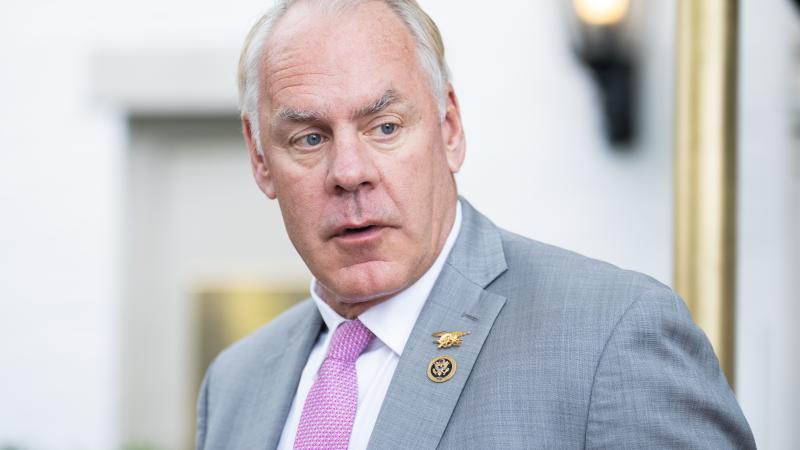Federal spending up by 16% compared to this time last year as interest payments on debt climbs
The national debt is nearly $34 trillion, due in part to an increase in federal spending of $64 billion.
Congress passed a short-term spending bill to continue current federal funding levels before leaving for the Thanksgiving break but federal spending is up $64 billion, or 16%, compared to this time last fiscal year as interest payments on the national debt rise.
According the latest Treasury Department data, the federal government has spent close to $470 billion so far into fiscal year 2024.
Debt service, or paying interest on the national debt accounted for 16% of the amount of taxpayer funds spent this year on federal government operations.
The top four spending categories are Social Security, 25%, followed by national defense, 19%, net interest at 16% and health at 15%.
The Congressional Budget Office has estimated that U.S. debt service alone will soar to $1.4 trillion by fiscal year 2033 and $5.4 trillion by fiscal year 2053.
To put those numbers in perspective, the government spent a total of $6.13 trillion in fiscal year 2023 and took in $4.44 trillion of revenue, resulting in a $1.7 trillion deficit that was added onto the national debt.
The U.S. deficit in fiscal year 2019, prior to the COVID pandemic, was $984 billion. The U.S. government has been running a deficit annually for most of the last 50 years.
"The U.S. has experienced a fiscal year-end budget surplus five times in the last 50 years, most recently in 2001," read a spending history analysis from the Treasury Department.
Interest payments on the national debt totaled $659 billion in fiscal year 2023.
So far into fiscal year 2024, the deficit is $66.5 billion, according to the U.S. Treasury.
Conservatives in the GOP-led House of Representatives were displeased that newly-elected House Speaker Mike Johnson did not put a Continuing Resolution or short-term spending bill on the floor reducing federal spending, given the rising national debt.
"That was a very bad move – funding Joe Biden's horrible federal government and Nancy Pelosi's budget [by] continuing it into January and February,” said Rep. Marjorie Taylor Greene, R-Ga., on the "Just the News, Not Noise" television program Tuesday. “I’m hoping we see better.”
Greene pointed out that Johnson voted against the clean CR that former House Speaker Kevin McCarthy put on the floor prior to his ouster, so she was "absolutely surprised" he supported a clean CR that continued the current spending levels as House speaker.
"I didn't expect that from him and it was really unfortunate," she said.
Maya MacGuineas, president of the Committee for a Responsible Federal Budget, has warned about the amount of interest payments the government is making on the growing national debt.
“Because we've borrowed so much, interest payments on the debt are the fastest growing part of the budget,” she said. “So no matter how much you bring your revenues up, the fact that spending is still going to be growing faster than your economy means it won't be able to keep pace. And you're going to have to bring some of those spending levels back under control.”















